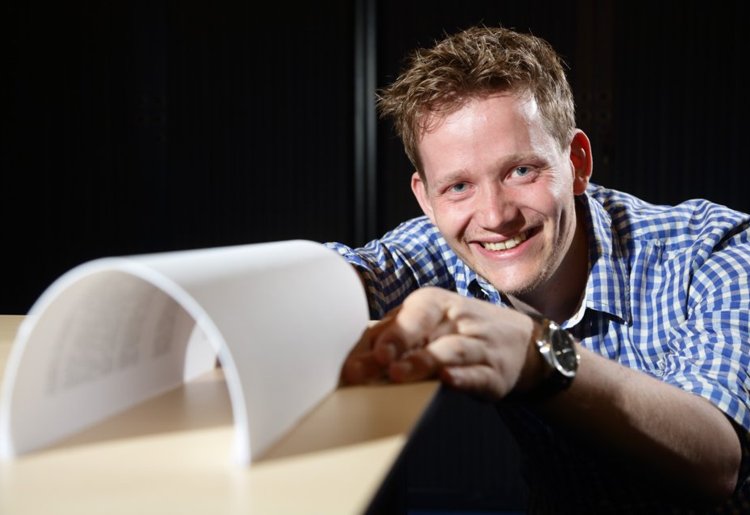Hello, I am Niels. I am currently a Civil Engineering EngD student at the University of Twente. EngD stands for Engineering Doctorate. It is a two-year programme that you can do after your Master's. When I finish I will be a 'technology designer'.
How did this come about? After a year of Aerospace Engineering back in 2005, I knew I needed a somewhat broader programme. My original programme was going okay, but I missed having subjects other than mathematics and physics. I had actually not expected this to happen with my first degree choice after secondary school. But during that first year, after thinking it through a lot, it became clear to me that I wanted a programme that offered engineering as well as management and organization subjects. I found this in the University of Twente's Civil Engineering programme – more so then in, say, Delft.
During the Bachelor's programme there is a lot of project-based work. You gain a lot of knowledge this way, but you also learn how to work together in a group. This continues on into the Master's Programme Construction Management and Engineering. You read a lot of literature and reports and then you quickly have to work this into your own (group) report/model.
Alongside the programme, I also participated in many excursions and practical days offered by student associations. The programme also offers outings and guest lectures, but the student association offer many more options. I would recommend that every new student do as much as they can on top of their programme! That is how one of my favourite years came about: a gap year after finishing my Bachelor's degree. I had organized a big study trip to Brazil, and of course I joined the trip myself.
As a EngD candidate with Rijkswaterstaat, a Dutch government body, my day-to-day work is designing an information model for road tunnels. I also take subjects for the necessary theoretical background and to gain skills that are important for me as a professional. At work I can quickly understand at an abstract level how new contract types, design and implementation processes and (civil) engineering relate to each other. In this programme I use the knowledge I gained during my Civil Engineering degree to develop a meaningful information model for Rijkswaterstaat. I use this knowledge to understand how my information model can be useful and fit into a real-life context.


